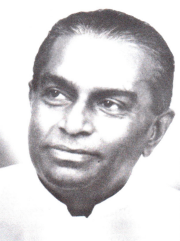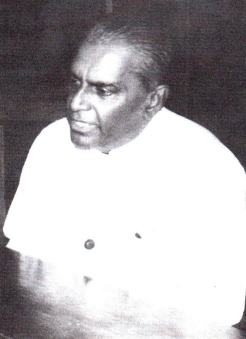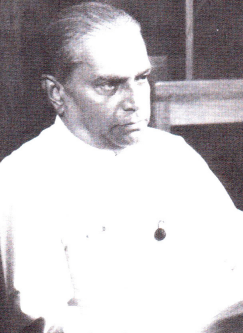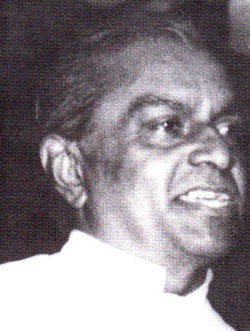Sri Lanka which until recently ranked high among the growing tourism destinations in South Asia, is having problem with the prevailing situation in the country. The Minister in charge of the subject, Mr. Dharmasiri Senanayake, Minister for Media, Tourism and Aviation, remains affable and always hopeful, despite the tough portfolios he holds. In an exclusive interview by Lucien Rajakarunanayake for “Explore Sri Lanka”, Mr. Senanayake did not attempt to conceal the problems faced by the tourism industry. Instead, he spoke frankly of the problems, the possible solutions and the hopes for the industry in the future.
ESL: The Sri Lanka Government recently decided to declare a virtual moratorium on loans given to the hotel industry by banks and financial institutions, due to the difficulties faced by the industry, consequent to the drop in tourist arrivals. Do you think the situation can improve soon?
Mr. Senanayake: The hotel industry needed the help very badly. Let us admit that we lost the last winter season. It was a winter of discontent for the tourism industry. So the hotel industry needed urgent help, in order to maintain their hotels and prevent retrenchment. The government responded positively, because we know of the actual situation and appreciate the importance of the hotel industry. when things begin to change.
ESL: When do you think things will begin to change?
Mr. S: One cannot set time-tables for this kind of thing. But we must not be discouraged. Experience teaches us that we can emerge, possibly even stronger from the current problems. If you will recall, the tourism industry suffered an even worse slump, it nearly crashed after the ritots of 1983, but within a few years time, the industry was on the bounce. Arrivals were on the rise, new records were achieved. So we need not be totally pessimistic about the prevailing conditions.
It is not only the prevailing crisis and adverse conditions that impact on tourism. Very few realize that without any special promotion, tourism to Sri Lanka grew by 5.3% in 1994-95. This was mainly due to the change in government, its position on human rights, the attempts to re-structure the economy with more transparency, and the directions towards faster economic growth, and very importantly, the proposals of the government for a political solution to the present conflict.
ESL: But hasn’t that situation completely changed today?
Mr. S: Of course it has. The conditions in the country, and the image projected abroad certainly do no good for tourism. Overall from September 1995 to August 1996 there has been a 30% drop in arrivals, and a consequent slump in the industry.
The hotel industry needed the most urgent help. But that is not all we have done. We realize that the most important problem is one of image abroad. The projection of a favourable image of Sri Lanka in our traditional visitor generating markets, and new regions we seek to enter. Towards this end, we recently organized a comprehensive familiarization tour by a large number of travel writers, mainly from our generating markets. We chose the time of the Kandy Esala Perahera, which remains an important visitor attraction. The seven day tour by 76 journalists covered the Cultural Triangle and the beaches too.
I also took the opportunity to speak to these journalists who had an overall favourable impression of our attractions, services and the security situation. The most important aspect of this familiarization tour was the de-briefing by the journalists, after the briefings done by us.
ESL: What was their precise reaction to the security situation?
Mr. S: They were satisfied with the steps being taken by the government. They noted the fact that so far no tourist had been harmed, although unsettled conditions have continued for so long. I think they accepted in good faith my explanation to them that there was trouble in so many parts of the world, and many countries that remain. popular tourist destinations.
ESL: Do you think that familiarization tours will be sufficient to get Sri Lanka’s tourism back on track?
Mr. S: Certainly not. In our present situation we have to look. at many other options, and approaches to restore confidence in Sri Lanka as a destination. But, according to the present indications I believe we can win back the lost winter. Which is no reason for us to rest. We should make our approach to tourism change with the changing realities and dynamics of the world and its economy.
ESL: What other approaches are you thinking of?
Mr. S: We have thought of special promotional campaigns which will promote Sri Lanka as a whole. Impress upon the world a good image of Sri Lanka in other spheres such as investment and related areas too, which will add to the confidence of the tourist. We have thought of a special promotional campaign which will be a combination of the resources and inputs from the Tourist Board, the Tea Board, the Export Development Board, Air Lanka, certain important industries and key financial institutions, as well as the tourism industry.
ESL: Are you satisfied with the current dependence of Sri Lanka on a limited number of generating markets?
Mr. S: Certainly this is a matter which needs to be reviewed. At present we depend on the European market for two-thirds of our arrivals. This will necessarily have to gradually change. We must look to the great potential of the Indian market, which is our closest neighbour. Of the increasing number of tourists from the rapidly developing economies of South East Asia. Then, with the new Air Lanka connection with South Africa, we must think of developing this market. There is good potential in this for the stopover traveller. I think it is also time for us to look at the Russian market, which has been virtually ignored so far. We must also begin to be more active in the promotion of conference and in centive travel.
ESL: Under the prevailing economic constraints will you have the resources to implement these new ideas?
Mr. S: Whatever economic difficulties we have, this government has tourism on its priority list. So it is necessary for us to find the resources. This government has a commitment to developing tourism as an important part of economic development. We have therefore set apart a budget of US 85 million for a special promotional programme, extending over the next two years.

ESL: The government has extended a helping hand to the hotel industry, but what is your view of observations that there has been over-investment, and over building in the hotel industry, and that the room strength Sri Lanka has is already too much?
Mr. S: I cannot agree with that at all. We have 11,200 rooms in the 1 to 5 star category accommodation units. In addition there are 2,500 more rooms under construction. This is being done in terms of the Master Plan for Zonal Development of Tourism. We cannot stop investment in the hotel industry, because of short-term setbacks. We must be ready for the future. If not for the current troubles, the present rooms would be full. The target of visitors for the Year 2000 is 850,000. And that is only four years away. We must act
with optimism. Otherwise we will be unprepared to meet even a more modest increase in arrivals in the coming years.
“Experience teaches us that we can emerge, possibly even stronger from the current problems”

ESL: You are talking in terms of the numbers of tourists arriving. Is this the best approach to have, although it can show you statistical gains?
Mr. S: Numbers are certainly not the only criterion. We must rapidly begin looking for greater quality in the tourist that comes here. For that we must invest in the best quality facilities. I agree that counting numbers only can give a wrong picture. We must go for the higher spending better tourist. Our approach must be one of looking at up-market tourism. There are many new areas we must develop and promote. We must constantly be aware of our competition. We must realize that Sri Lanka is not the only girl on the beach.
ESL: This has been said for many years, by many ministers and governments, but what is being done to attract this market?
Mr. S: As I said earlier, our government has tourism high on its list of priorities in economic development. We have therefore earmarked Rs.20 billion for the development of tourism infrastructure, facilities and promotions. We are thinking of new recreational facilities. For example, it has already been decided to have three more golf courses, at Mahaberiatenne in the hills, Muthurajawela near Colombo, and Avissawella which is not too distant from Colombo.
“This government has a commitment to developing tourism as an important part of economic development”

There is also the fact that there is very little entertainment and sightseeing possibilities in Colombo. To meet this shortcoming, it has been decided to convert the old Dutch Hospital in the Colombo Fort, a building of archaeological interest by itself which is now occupied by the Police, into a Cultural and Entertainment Centre. This will have a variety of attractions for tourists from traditional handicrafts and skills, to entertainment facilities, and also restaurant facilities..
The government is also encouraging those in the private sector to make investments in entertainment which could be enjoyed by tourists. We have to encourage cultural activities, which will be in syne with the needs of the local population as well as be of interest to the tourist. We are also looking at the development of Eco-tourism, which is a fast growing area of tourism activity. The Southern Development Authority has this earmarked for special development, particularly as a means of encouraging self-employment.
ESL: If tourism were to get back on the bounce as you hope for, what impact do you think it will have on the environment and the concerns about bio-diversity?
Mr. S: There is the classic question that has been asked whether tourism is a blessing, blister or blight. It is necessary that we do not let it become either a blister or blight. We must take every precaution to protect the environment in the construction of hotels. They must be able to help the local economy in the area. where they are built. If we let tourism destroy or harm the environment and damage bio-diversity, we will in fact not be helping in development but in the destruction of natural resources. We are conscious of this, and maintain a constant vigilance on the environmental aspect of tourism. It is my belief that we must have an environment that we can proudly show any visitor to the country. No tourism facility construction is permitted without the approval of the relevant authorities appointed to protect the environment, conserve the coast, protect our archaeological treasures, and not damage the bio-diversity of Sri Lanka.

ESL: Do you think the tourism industry also thinks the same way as you do about the environment?
Mr. S: It is important that they do, because otherwise they will have no product to sell. In any event they will be compelled to be concerned by the authorities that are responsible for environmental protection.
ESL: You are quite optimistic about the future of tourism in Sri Lanka. How would you wish to end this interview?
Mr. S: Like I told you earlier, we must win back this winter, and many more winters to come. That will be my greatest satisfaction as the Minister in charge of Tourism.
Courtesy: Explore Sri Lanka (September 1996)


